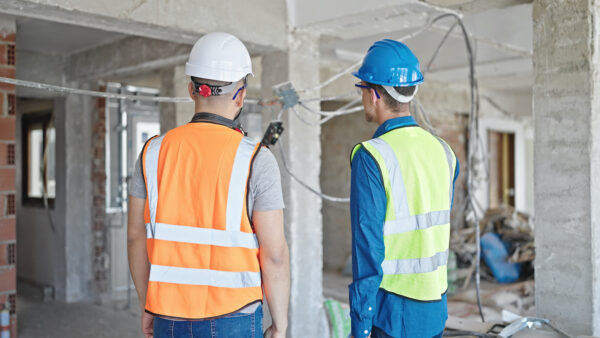As an architect, a BREEAM assessor and environmental manager for Simons Group, and also simply as a person who lives, works, volunteers and hopes to thrive in the UK for many years to come, I see the impact of government policy on many aspects of business and personal life.
This is not a paywall. Registration allows us to enhance your experience across Construction Management and ensure we deliver you quality editorial content.
Registering also means you can manage your own CPDs, comments, newsletter sign-ups and privacy settings.
The construction industry can be helped by policy that unlocks work streams, smooths the path to winning work, and gives us the opportunity to deliver projects our customers can be proud of and operate efficiently.
As construction professionals prepare to vote with the general electorate on 7 May, this is my wish list for the next government.
Certainty of project funding
Recently we have seen many potential projects seem to be slowed and limited by funding uncertainty. This extends tender periods, and wastes the time and resources of the contractors tendering and the client organisations.
Diverting resources to trying to win work is a strain for contractors, places individuals under pressure, and, over time, contributes to ill health in the workforce and a repeated sense of failure.
Meanwhile, people would benefit from improved built environment standards as users of schools, hospitals, and council sport, arts and community buildings. Especially in small communities, where people depend more on local facilities.
Make training employees easier
Responsible construction companies already provide apprenticeships, training and work experience, and interact with schools and colleges. It’s been tough during the recession, when small firms might have lacked workload certainty to commit to training programmes.
But the outlook is improving. Any financial assistance to employers and liaison with employment and training agencies just goes further to support this. So please, whatever happens, don’t create any barriers to maintaining momentum.
Manage energy at a community level
We welcome the Energy Savings Opportunities Scheme and, as a company, are working towards ISO 50001. We combine technology with behaviour change to improve our carbon footprint. It takes coordination in every department.
Flooding, storms and heatwaves affect our infrastructure on a regular basis, and although this generates repair work for parts of the construction sector, it would be better to put in preventative measures before the damage is done.
But as a developer, we do not see much joined-up thinking on energy strategy we are exposed to in local planning. There is a massive opportunity to coordinate the Green Deal, Part L of the Building Regulations, improving standards in rented residential accommodation and district-level renewable heat, to name a few.
Although not necessarily making construction projects any cheaper, we see the benefits in reducing fuel poverty, and opportunities for new ventures and revenue streams, such as performance bond contracting and energy supply companies.
Planning and spending on resilience
One of the things that concerns me most is the industry’s resilience to future impacts. Flooding, storms and heatwaves affect our infrastructure on a regular basis, and although this generates repair work for parts of the construction sector, it would be better to put in preventative measures before the damage is done. Funding for flood defences must be maintained, but it is a big picture, influenced as much by forestry and agriculture as it is by individuals’ garden-landscaping choices.
Investment must happen. It is vital for all businesses, not just the construction industry, to be able to operate at all times.
Help SMEs comply with CDM 2015
Many small and domestic projects are likely to be undertaken without the client knowing their new obligations under CDM 2015. And once they are aware of them, they may find it difficult to appoint a suitable construction professional as lead designer. The intention to improve site safety is welcome, but some small projects may not actually happen because the client sees the risks and costs as too great.
Biodiversity upgrading, not offsetting
Landscaping is usually the last bit of a project budget to get spent, and often gets cut. Most customers just want low maintenance and have not realised that better greening improves human behaviour. Spending on biodiverse, drought-tolerant, native planting is good for wildlife and building occupants. Incentivising building operators to choose better landscaping would be a huge boost.
Keep funding high-quality research
Having been involved in Technology Strategy Board-funded research projects, we know there is a huge body of evidence covering many of the areas raised here. The new government must commit to funding this work and disseminating it as widely as possible. As well as improving design, procurement practices and building performance, this would save resources for government, businesses and individuals.
Finally, we need to support these messages in the wider community, helping home owners to see the benefits of insulation and airtightness, helping communities maintain safe, compliant places and encouraging teams to provide habitat for wildlife on every project.
Rosi Fieldson is head of environment and BREEAM consultant at Simons Group










